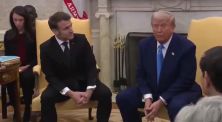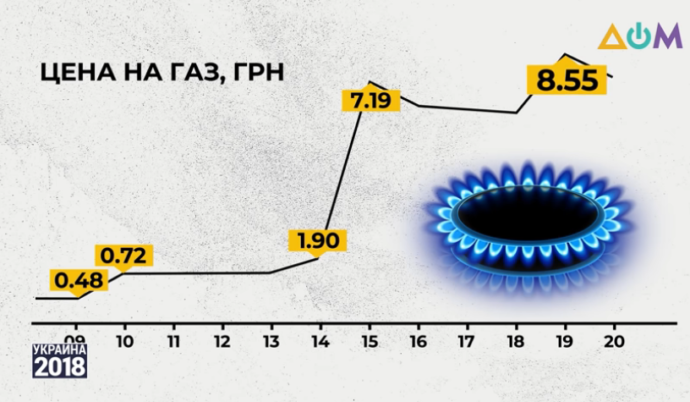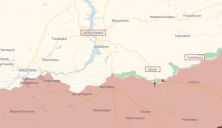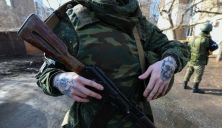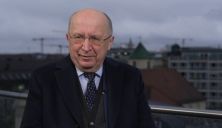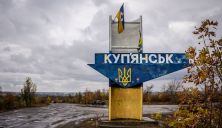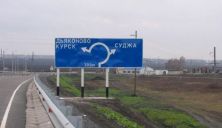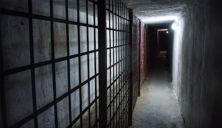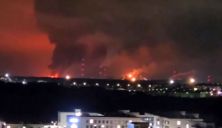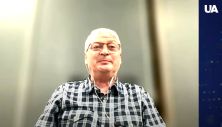The year 2018 was remembered by the cold spring and high gas prices, as well as the capture of Ukrainian ships by the Russian Federation. At the same time, Kyiv hosted the Champions League final for the first time, and the Ukrainian film won the prize in Cannes for best director.
We tell about it in the new issue of the documentary series “30 years of Independence” on the UA TV channel.
Thus, Ukraine has already experienced significant increases in gas prices in 2010 – from UAH 0,48.4 to UAH 0,72.5 per cubic meter. In 2014, amid the war and the high dollar, the price of fuel rose to UAH 1,09. In 2015, gas prices rose to UAH 7. Now it turns out that a cubic meter of gas will cost UAH 8,55. This is a condition for obtaining a new loan from the IMF.
“The government is always interested in being popular with the people, and wants to make tariffs lower so that people like it more, because of low tariffs. Sometimes government officials bend the stick with their desire so much that they drive energy into losses, and then they have to raise tariffs sharply to catch up with these losses, that’s all the fuss. The IMF is the international economists who run our country, and when they come here every three months, they immediately look at the key indicators and say: oh, guys, you played with tariffs, you don’t see that you are incurring losses, you will then take money from the Pension Fund to cover the losses of the power plant, why are you doing this, raise tariffs to the market level” – says economist Mykhailo Kukhar.
Many cities, such as Nikopol and Kamyanske (formerly Dniprodzerzhynsk), refuse gas altogether.
In 2018, Ukraine hosted the final of the Champions league. British “Liverpool” and Spanish “Real” played.
“When the NSC “Olympic” applied for the Champions League final, the world learned that we can have a good time, because we have everything cool, everyone understood it” – said football expert Mykola Vasylkov.
“Who ordered Katya Gandziuk” – thousands of such graffiti appear across the country after the assassination attempt on Kherson activist Kateryna Gandziuk. Society demands to find and punish the guilty.
A participant in the Orange Revolution and Euromaidan, the former deputy of local councils actively criticized law enforcement and local authorities. On July 6, Kateryna publicly accused the head of the regional council, Vladyslav Manger, of setting fire to the forest to hide the deforestation. And in three weeks she is attacked – doused with sulfuric acid near the house.
Kateryna gets 35 percent body burns. She will be transported to Kyiv to be rescued.
The police initially described the case as “hooliganism”, but after public outrage reclassified it as “intentional grievous bodily harm for the purpose of intimidation”. Friends and like-minded people will create a movement “Who ordered Katya Gandziuk” to prevent the matter from being “silenced”.
One and a half months later, the police detained five suspects – it turns out that they were paid several thousand dollars for intimidating the girl. But the customer has not yet been found.
On November 4, Gandziuk died without waiting for the name of the person who hired the killers. The same head of the regional council, Vladyslav Manger, whom she criticized for illegal logging, will be accused of this.
Also this year, the murder of journalist Arkady Babchenko was staged in Kyiv.
In addition, in 2018, the United States will supply Ukraine with the first batch of the Javelin anti-tank complex.
On November 25, the first reports in all Ukrainian media – off the coast of Crimea – a maritime conflict. Two boats “Berdyansk” and “Nikopol”, as well as the tug “Yani Kapu” made the transition from the Black Sea to the Azov. In the Kerch Strait, the Russians block their way. Then – ramming, shooting and capture.
Versions of the event are diametrically different: Ukraine is talking about the planned passage of ships and the right to use the Kerch Strait. Russia, after the occupation of Crimea, considers the waters of the peninsula as its border.
Russia will use aircraft and completely close the Kerch Strait. Ukraine imposes martial law in ten coastal regions.
They will replenish the number of Ukrainian prisoners in Russia. There are at least a dozen of them in Russia, and if we take into account the fate of the detained Crimean Tatars, there are many more. In 2018, Crimean citizens Volodymyr Balukh, Oleh Sentsov, and Oleksandr Kolchenko will go on a hunger strike.
And in 2019 there will be an exchange of prisoners with Russia – 35 to 35. Kolchenko, Sentsov, Balukh, all sailors from the captured ships will return to the homeland. As well as the ships.
